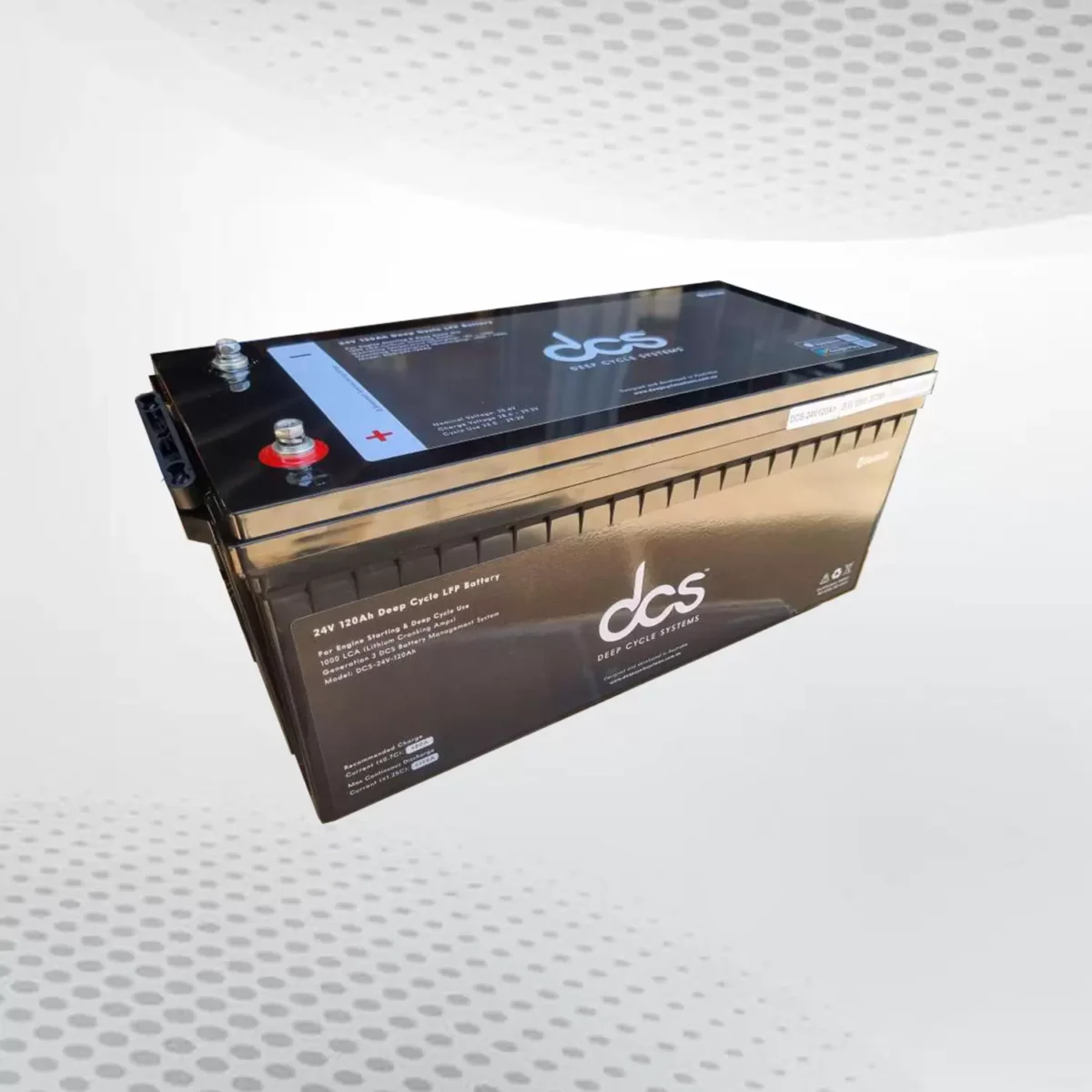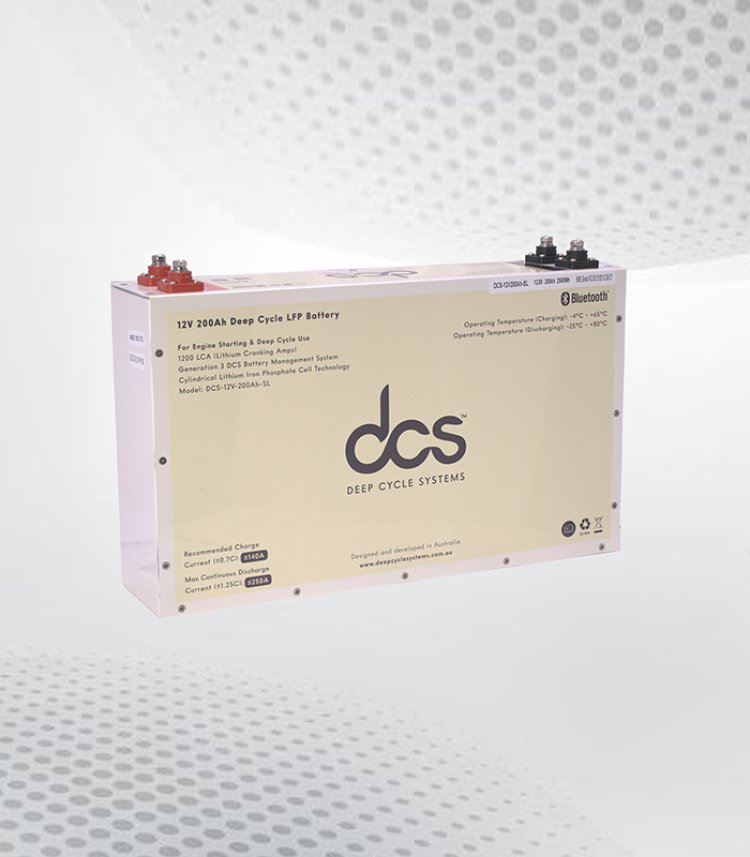If you’re in the market for a reliable power source that can withstand deep discharges and long periods of use, investing in a 24v deep cycle battery might be the right choice. Whether you’re using it for your RV, boat, or solar power system, understanding the ins and outs of these batteries is crucial to making an informed decision. In this blog post, we’ll cover everything you need to know about 24v deep-cycle batteries, including their benefits, key considerations before purchasing, maintenance tips, common uses, troubleshooting issues, and the future of these batteries.
Understanding the Basics of Deep-Cycle Batteries
Deep-cycle batteries distinguish themselves from standard car batteries by their capability to be repeatedly discharged and recharged without incurring significant damage. This is due to their design, which emphasizes durability and long-term power delivery over short, intense bursts of energy. Specifically engineered for applications requiring a continuous power supply over prolonged periods, these batteries can discharge up to 80% of their capacity without suffering the detrimental effects that would sideline less robust battery types.
The structure of deep-cycle batteries includes thicker plates and denser active material composition, which contribute to their resilience and ability to endure numerous charge and discharge cycles. This makes them an indispensable component in systems that rely on a steady, reliable source of energy, such as renewable energy installations, where they store the power generated by solar panels or wind turbines until it’s needed.
The chemistry of deep-cycle batteries can vary, encompassing lead-acid (both flooded and sealed), gel, and absorbed glass mat (AGM) types, each offering distinct advantages in terms of maintenance requirements, lifespan, and performance under different conditions. Understanding these differences is key to selecting the right deep-cycle battery for your needs, ensuring you benefit from an efficient, long-lasting power solution tailored to your application’s demands.
The Benefits of Choosing a 24v Deep-Cycle Battery
Opting for a 24v deep-cycle battery presents a series of significant advantages that cater to those seeking a dependable and efficient energy solution. The increased voltage level of 24v batteries allows for more power-intensive equipment or the concurrent use of various devices, enhancing the user’s convenience without compromising the battery’s performance. This characteristic is particularly beneficial in settings where the energy demand is high and continuous, ensuring your system runs smoothly and reliably.
Another key benefit is the enhanced efficiency these batteries provide. With a 24v system, the current passing through the components is lower for the same power output compared to a 12v system, which can reduce energy losses due to resistance in cables and connections. This increased efficiency can lead to a noticeable improvement in the overall performance of your energy system, making a 24v deep-cycle battery a smart investment for those looking to optimize their power usage.
Moreover, the long-term reliability and durability of 24v deep-cycle batteries stand out. Designed to endure repetitive discharging and charging cycles without significant degradation, these batteries offer a commendable lifespan that can ultimately save users money on replacements and maintenance. Their robust construction and advanced design principles equip them to serve reliably over the years, providing peace of mind to users who depend on consistent power for their applications. Whether for leisure, work, or emergency backup, the resilience and longevity of 24v deep-cycle batteries make them an ideal choice for a wide range of needs.
Key Considerations before Purchasing a 24v Battery Deep Cycle
When considering the acquisition of a 24v battery deep cycle, it’s essential to weigh several factors to ensure that your investment meets your energy needs effectively. Here are five key considerations to guide your decision:
Capacity Needs
Evaluate the energy requirements of your application. The ampere-hour (Ah) battery rating will determine how long it can power your devices before recharging. Select a battery with a capacity that aligns with your usage to avoid under or overestimating your power needs.
Compatibility
Ensure the battery is compatible with your existing system, especially if you integrate it into an RV, solar setup, or marine electronics. Voltage mismatches can lead to inefficient operation or potential damage to your equipment.
Battery Type
Consider the specific type of deep-cycle battery that best suits your application. Whether AGM, gel, or flooded lead acid, each has its maintenance requirements and operational advantages.
Lifespan and Warranty
Investigate the battery’s expected lifespan and the warranty provided by the manufacturer. A longer warranty period can offer peace of mind, indicating the manufacturer’s confidence in their product’s durability.
Cost
While not the sole factor, the price of the battery should align with your budget and the value it brings over its operational life. Expensive sometimes means better, but investing in a quality battery can save costs on replacements and maintenance in the long run.
Maintenance Tips for Your 24v Deep-Cycle Battery
Maintaining your 24v deep-cycle battery is crucial to ensuring its longevity and optimal performance. Begin by regularly inspecting the battery for any signs of wear or damage. Keep the terminals clean from corrosion by gently brushing them with baking soda and water and then rinsing them with clean water. This prevents loss of conductivity and ensures efficient power flow.
It’s important to monitor the battery’s state of charge. Avoid allowing the battery to discharge fully, which can significantly reduce its lifespan. Instead, keep the battery charged to at least 50% capacity. If your battery is the type that requires water (e.g., flooded lead acid), make sure to check the water levels frequently, especially after periods of heavy use or charging. Only use distilled water to refill, as tap water can introduce minerals that may harm the battery’s internal components.
Additionally, overcharging can be just as detrimental as deep discharging. Ensure that your charging system is properly set up for your battery type to avoid overcharging, which can lead to overheating and accelerated wear. If the battery will not be used for an extended period, store it in a cool, dry location and periodically charge it to maintain health. Implementing these maintenance practices will help maximize the efficiency and lifespan of your 24v deep-cycle battery, keeping it ready for when you need it most.
Common Uses for a 24v Deep-Cycle Battery
24v deep-cycle batteries find their place in various applications due to their robust performance and longevity. These batteries are particularly favored in scenarios requiring sustained energy delivery over extended periods. For instance, the power various marine electronics and trolling motors in boats, ensuring navigational systems and fish finders remain operational throughout long fishing trips. Recreational vehicles provide the necessary juice to support lighting, heating, and small appliances, making off-grid living seamless and comfortable.
Golf carts and electric cars benefit from 24v deep-cycle batteries, appreciating their ability to maintain consistent power output over numerous charge cycles, which are essential for daily operation and longer range. Additionally, they are a cornerstone of off-grid solar and wind energy systems, where they store energy generated during peak production times for use during periods of low generation or high demand. This ability to reliably supply power in various settings underscores the versatility and essential nature of 24v deep-cycle batteries across multiple industries and hobbies.
Troubleshooting Common Issues with 24v Deep-Cycle Batteries
When facing challenges with your 24v deep-cycle battery, promptly identifying and addressing common issues can prevent long-term damage and maintain the battery’s efficiency. Solation, where lead sulphate crystals accumulate on the battery plates, significantly impairs its performance. This typically occurs when the battery is left discharged for an extended period. To counteract salvation, ensure regular charging and consider using a desolator or pulse charger designed for this purpose.
Low electrolyte levels can also compromise battery health, particularly in flooded lead-acid types. This issue arises from water loss due to evaporation or overcharging. Regularly inspecting electrolyte levels and topping up with distilled water when necessary can mitigate this problem. Always wear protective gear when handling battery acid and ensure proper ventilation in the maintenance area.
Internal shorts are another concern, often resulting from physical damage or the shedding of active material from the plates. These shorts can drastically reduce battery capacity and may pose safety risks. While difficult to repair, identifying a battery with an internal short early can prevent further damage to the battery or connected systems. If your battery exhibits decreased performance, such as failing to hold a charge or reduced capacity, conducting these troubleshooting steps can help identify the issue. For more complex problems, consulting with a professional or the manufacturer may be necessary to ensure safe and effective resolution.
The Future of 24v Deep Cycle Batteries
The trajectory of 24v deep cycle batteries is closely aligned with the advancements in battery technology and the increasing emphasis on renewable energy systems. As researchers and manufacturers innovate, we’re likely to witness enhancements in the materials used for these batteries, leading to higher energy densities, reduced charging times, and even longer life spans. These improvements will directly benefit users by offering more efficient and reliable energy storage solutions capable of meeting the demands of various applications with greater sustainability.
Developing more environmentally friendly manufacturing processes and recycling methods is also expected to minimize the ecological footprint of 24v deep-cycle batteries. Integrating smart technology is another frontier, enabling batteries to communicate with other system components for optimized performance and predictive maintenance. This evolution will ensure that 24v deep-cycle batteries remain at the forefront of energy storage solutions, particularly in settings that require dependable, long-term power without constant supervision. As the world moves towards a more sustainable and energy-efficient future, these batteries will undoubtedly play a pivotal role in bridging the gap between renewable energy production and consumer power needs.
Conclusion
Selecting a 24v deep cycle battery as your energy source is a strategic choice that caters to various needs, from recreational vehicles and marine applications to renewable energy storage. These batteries’ efficiency, durability, and versatility make them an essential asset for those requiring reliable, long-term power solutions. By closely considering your specific energy requirements, ensuring compatibility with existing systems, and opting for a battery that suits your application’s demands, you can make an informed decision that enhances the performance and sustainability of your power system. Regular maintenance and vigilant troubleshooting further safeguard your investment, ensuring that your 24v deep-cycle battery delivers optimal performance throughout its lifespan.
FAQs
Q: Can I charge my 24v deep-cycle battery with a solar panel?
A: Absolutely! With the right solar charge controller, you can efficiently charge your 24v deep-cycle battery using solar panels, making it an excellent choice for off-grid power systems.
Q: Is using a specific charger for my 24v battery deep cycle necessary?
A: Yes, it’s crucial to use a charger that matches the 24v battery deep cycle type (e.g., AGM, gel, or flooded) and is designed for a 24v system to ensure safe and efficient charging.
Q: Can a 24v deep-cycle battery power my home during an outage?
A: A 24v deep-cycle battery can provide power for essential items, but the total capacity depends on your home’s energy requirements. You may need a series of batteries and a properly sized system for whole-house power.
Q: Are 24v deep-cycle batteries environmentally friendly?
A: Advances in battery technology are making them more eco-friendly. To minimize environmental impact, choose a battery with a long lifespan and recycle old batteries properly.




